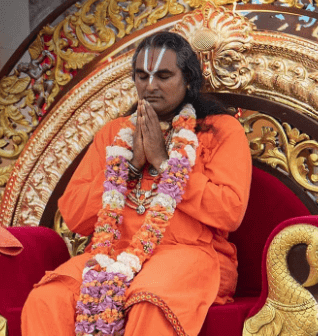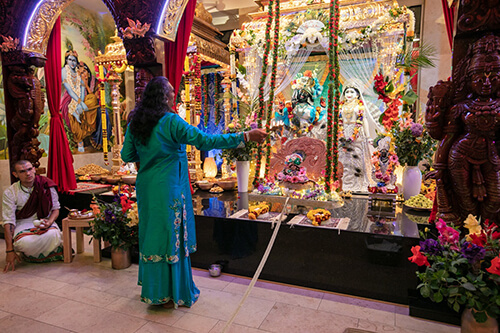FIVE BHĀVAS
Within sākhya-bhakti there exist different forms of having a relationship with God. They can’t be misunderstood as being the same as relationships between common people. The relationship between the soul and God is the eternal connection in which one is in the highest state of existence, which is called ‘bhāva’. Bhāva means mood, being, feeling. They are divine states of being which are beyond the understanding of the ordinary mind.
There are five kinds of bhāvas in sākhya-bhakti and they start after one has reached the state of anurāga-prema. The sixth prema and the fifth bhāva are the same, after which, ātmanivedana-bhakti comes.
Śānta-bhāva
The bhāva of peace. This is the first bhāva that one encounters. In this deeply peaceful state, the love for God is not expressed outwardly. A person in this state may appear to the outside world as stern, but inwardly their heart is as soft as a child’s heart.
Dāsya-bhāva
The bhāva of service. In this bhāva, pleasing the Lord is everything and is expressed by the greatest humility.
Sākhya-bhāva
The bhāva of friendship. In this bhāva all formal boundaries between the Lord and devotee are transcended. However, the bhakta never forgets that the Lord is the Lord, even though the bhakta moves with the Lord on ‘equal terms’. For example, Arjuna had this bhāva towards Lord Kṛṣṇa. Arjuna and Kṛṣṇa used to sit, eat, talk and walk together as intimate friends.
Vātsalya-bhāva
The bhāva of parenthood. This is a very rare bhāva. When one reaches this bhāva, the Lord becomes one’s child as Kṛṣṇa was to Yaśodā and Nanda, or as Jesus was to Mother Mary and Saint Joseph.
Mādhurya or Mahā-bhāva
The bhāva of the Divine Lover. This is the highest of all bhāvas. The Lord becomes the Divine Lover of the soul. This is a purely spiritual state and transcends the ordinary physical experience. Falling in Love with the Lord is thousands of times greater than falling in love with another person. Lord Gaurāṅga, Mīrā and Āṇḍāl had this bhāva.




